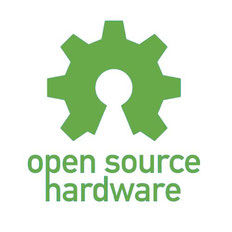Scientific Instruments based on open source designs

The combination of 3D-printing and microcontrollers running on free software enables scientists and lab technicians to design powerful research tools at unprecedented low costs. While open-source scientific hardware is still at an early stage of the evolutionary process, it has great potential to democratize science but also to develop truly innovative and highly functional scientific instruments together - for example during joint research projects. The 'source codes', i.e. recipe of components (CAD files, material, ...) and assembly instructions, of hundreds of scientific tools are already freely available in repositories such as Gaudi Labs, NIH 3D print exchange, Open Hardware Repository, PLOSone, Thingiverse and many others.
A few designs, such as the
- Plant "PhenoBox",
- "RoPod" chambers for Arabidopsis roots,
- "Syringe pump", and "Microinjection dispenser" for laboratory use,
- "operant chamber" for behaviour studies, or an
- "insect trap monitoring system" enabling timely pest control,
are highlighted to illustrate the potential of the open hardware / open source movement to "democratize" science. While open hardware has a bright future and is likely to play an increasingly important role in the scientific community, a key challenge is to ensure the quality and accuracy of the instruments. This is of course particularly the case where open hardware designs are used for critical applications such as medical research or diagnostics. However, with appropriate oversight and quality control measures, these challenges can be overcome. Overall, the emphasis on collaboration, knowledge sharing, and democratizing access to scientific instruments is likely to drive innovation and benefit the scientific community and society in many ways for years to come.
Open Hardware - Design Examples
Open-Source Plant Imaging / Shoot Phenotyping
Open-Source Root Microscopy Chamber
Open-Source Laboratory Syringe Pump
Open-Source Operant Chamber for Rodents
Open-Source Insect Trap
Ejection of pico- & nanoliter volumes
Help with Open Hardware Set-up and Development
Helping to realize open hardware designs. Although open source designs are often published with assembly instructions aimed at the non-specialist, a basic understanding of physics, electronics and computer programming concepts is certainly helpful. If you are concerned about whether DIY scientific instruments based on open hardware designs will meet the high quality standards required for your research, if you simply don't have the time to 3D print, laser cut and/or solder (some) components yourself, or if you prefer to buy an open source instrument that has been professionally assembled, Vienna Scientific Instruments is your partner. We precisely manufacture and assemble the open source kits you need for your research or educational purposes. Contact us if you need any support setting-up open hardware projects or if you are interested to adapt designs to your requirements. Please be aware that without a joint R&D project, we produce the open hardware as described in the related documentation / publication or implement modifications as defined by the customer.
| References | Open Hardware in the Natural Sciences | OPEN |
|
||
VSI Fair Play Commitment

In order not to hinder the development of the open lab/hardware movement, we guarantee that potentially modified design files, bills of materials and any software required to run the open source hardware will be made available to the scientific community.






